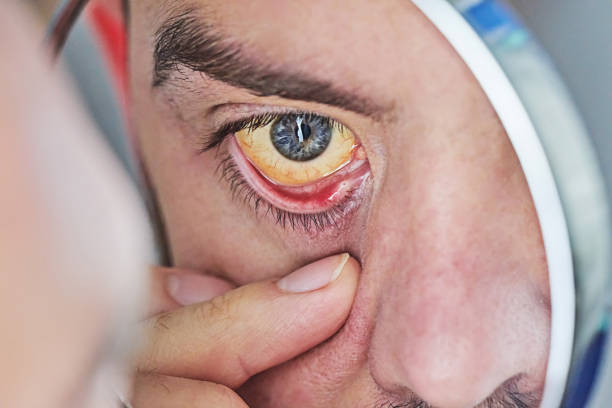Anemia is a condition characterized by a lack of red blood cells or a low level of hemoglobin in the blood. Hemoglobin is an iron-rich protein that helps carry oxygen from the lungs to the rest of the body. When anemia occurs, the body does not get enough oxygen, leading to a range of symptoms and complications.
Symptoms of Anemia The symptoms of anemia can range from mild to severe, and they may develop gradually or suddenly. Some common symptoms include:
Fatigue: One of the most common symptoms of anemia is feeling tired or weak. This can be due to a lack of oxygen in the body, making it harder to perform daily tasks.
Shortness of breath: As anemia worsens, you may experience shortness of breath, especially during physical activity.
Rapid heartbeat: Anemia can cause the heart to work harder, leading to a rapid heartbeat or palpitations.
Pale skin: Anemia can cause a pale or yellowish complexion, especially in the face and eyelids.
Dizziness or lightheadedness: Anemia can cause a drop in blood pressure, leading to feelings of dizziness or lightheadedness, especially when standing up.
Cold hands and feet: Anemia can cause the body to conserve heat, leading to cold hands and feet.
Headache: Anemia can cause headaches, especially in the front of the head.
Brittle nails: Anemia can cause nails to become brittle and break easily.
Mouth sores: Anemia can cause painful mouth sores, especially on the tongue and inside the cheek.
Treatment for Anemia The treatment for anemia depends on the underlying cause and severity of the condition. Some common treatments include:
Iron supplements: If anemia is caused by a lack of iron, taking iron supplements can help restore iron levels in the body.
Vitamin B12 injections: If anemia is caused by a lack of vitamin B12, taking vitamin B12 injections can help restore normal levels.
Folate supplements: If anemia is caused by a lack of folate, taking folate supplements can help restore normal levels.
Blood transfusions: In severe cases of anemia, a blood transfusion may be necessary to restore normal levels of red blood cells.
Surgery: If anemia is caused by a medical condition that requires surgery, such as endometriosis or cancer, surgery may be necessary to treat the underlying condition.
Lifestyle changes: Making lifestyle changes, such as eating a healthy diet that includes iron-rich foods and avoiding alcohol, can help prevent anemia and manage its symptoms.
In conclusion, anemia is a condition characterized by a lack of red blood cells or a low level of hemoglobin in the blood. Common symptoms include fatigue, shortness of breath, rapid heartbeat, pale skin, dizziness, cold hands and feet, headache, brittle nails, and mouth sores. The treatment for anemia depends on the underlying cause and severity of the condition and can include iron supplements, vitamin B12 injections, folate supplements, blood transfusions, surgery, and lifestyle changes. If you suspect that you may have anemia, it is important to seek medical attention so that an accurate diagnosis can be made and appropriate treatment can be started.

 Home
Home Health
Health Diet & Nutrition
Diet & Nutrition Living Well
Living Well More
More












